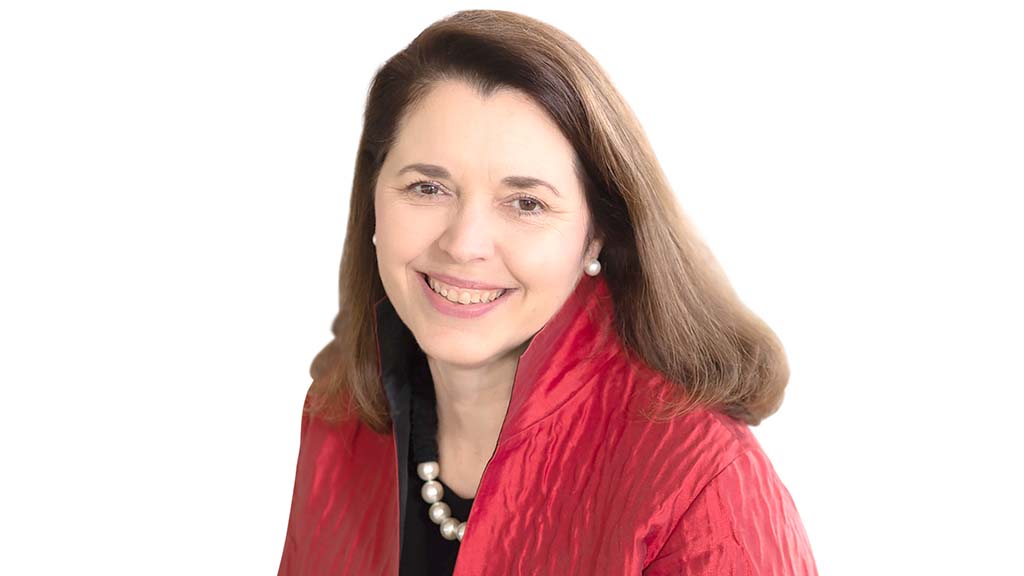2022 Association Lobbyist of the Year: Jennifer Hatcher
Lobbyist for FMI, The Food Industry Association enjoys helping members navigate the intersection of government and business.
- July 18, 2022 |
-
 CEO Update
CEO Update


Lobbyist for FMI, The Food Industry Association enjoys helping members navigate the intersection of government and business
CEO Update will recognize Hatcher at the 9th annual Association Leadership Awards. Profiles of 2022 honorees Patricia Blake, CEO of the Heart Rhythm Society, and Steve Caldeira, CEO of the Household & Commercial Products Association, are upcoming. For more information about the Oct. 18 ALA event, go to AssociationLeadershipAwards.com.
CEO Update: Where are you from?
Jennifer Hatcher: I'm from Knoxville, Tenn., and that's actually how my trade association story started. We had three family businesses in Tennessee and the constant between each of those businesses was our involvement with both the local and national trade associations. So I had seen trade associations from the outside and the value that they could bring in terms of the camaraderie, the ideas and then also the advocacy.
You joined FMI in 1998. What was it about the association and its mission that captured your interest?
It was to be able to use the combination- of all of those skills that I had been working on-—the regulatory analysis, the legislative as well as the political (experience)—in one place and also for a business community association that I felt some loyalty to. … I understood their issues and felt that I could make a difference, and that the organization can make a difference for so many businesses.
What has kept you at FMI for more than two decades?
The people are fantastic—the members as well as my colleagues—but (FMI) has also been three different associations. When I started at FMI, it was the food retailers. … A few years after I started, we merged with another association—that was the food distributors, so we had the wholesale component. And then a few years ago FMI changed again into a third type of association and added product suppliers, so the manufacturing component.
FMI advocates for a wide range of policy issues at the federal and state levels. How do you balance the two?
There are so many different issues that impact members because their profit margin is so small. It's between 1% and 3% in terms of an industry profit margin, so I tell folks we're chasing pennies every day. … The key is colleagues and relationships—both my internal colleagues at FMI and at other associations. Every day we're involved in coalitions where there's a person who has the expertise on a particular issue and then the rest of us are supporting that role. It happens over and over.
I think the food industry, the business community and the association community are really great at the work of coalitions. So much more can be accomplished with a coalition than any one person or organization trying to do it on their own.
Speaking of federal advocacy, has the lack of bipartisanship in Congress made your job more difficult?
It's really important for us to be intentional about it and seek out bipartisanship. Certainly, those members who have strong relationships across the aisle make the best sponsors of legislation or advocates on Capitol Hill. And that's one of the first questions that I ask when we're approaching a member of Congress on legislation: Who do you enjoy working with on the other side of the aisle?
What do you feel are your greatest accomplishment at FMI?
There are big accomplishments and those are the ones that are in the press, but it's the day-to-day things: helping someone with a small issue that ultimately impacts their business and their ability to operate. People have licensing challenges or there are general restrictions that would otherwise keep their business from operating if you weren't able to help them. It's the little things that have a real impact on an individual member that make you happy.
What characteristics does an association lobbyist need to be successful?
The main thing is you have to be willing to develop and maintain relationships—relationships with your colleagues, relationships with members of Congress and relationships with other associations. There will be times when you're on the opposite sides of issues and there will be times when you're advocating together … but it's important to be able to develop and grow those relationships regardless of what the situation is.
CAREER HIGHLIGHTS
Policy career: As FMI's chief public policy officer and senior vice president, government and public affairs, Hatcher oversees federal, state and regulatory efforts. She previously was chief of staff to
former Rep. Spencer Bachus (R-Ala.) and, before that, special assistant and White House liaison at the Treasury Department. She has a bachelor's degree in political science and communication from Vanderbilt University and a master's degree in government from Johns Hopkins University.
Family business: Hatcher's family owned three businesses when she was growing up: An insurance company founded by her grandfather (run now by her brother), a hotel and a restaurant.
Green things: Hatcher is on the board of directors for the Friends of the National Arboretum (FONA), an independent nonprofit group. She was board chair when the pandemic struck; FONA was forced to pause its Washington Youth Garden program and halt revenue-raising venue rentals for weddings and other events. "Managing that organization during that time period … you had to call on your relationships and try to be flexible," she said.
